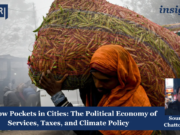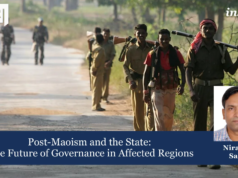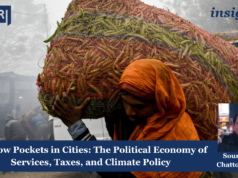Policy Update
Swanami Ghosh
Background
The Biotechnology Career Advancement and Re-orientation (BioCARe) Programme is a targeted initiative by the Department of Biotechnology (DBT), under the Ministry of Science & Technology, Government of India. The programme started with an objective to enhance the presence of female researchers in Biotechnology and allied areas in the country.BioCare provides sanctioned extramural research funding to unemployed female researchers.
Functioning
Applications for the BioCARe program are only invited from Indian women researchers on the Department of Biotechnology website.. The procedure involves a complete submission providing the general details of the applicant, research proposal, budget, and regulatory in selection Process:
- The suitable applications are screened by an Expert Committee formed by the Department on scientific merit to shortlist candidates.
- Shortlisted candidates are then asked to submit their research proposal to this Expert Committee.
- A formal sanction order is given on technical approval of a project as per the recommendations of the Expert Committee.
Requirement of Mentor:
One obligatory part of the application is identifying a mentor for the project proposal in a suitable host institute. The mentor is either male or female and should be a permanent staff member at the Host Institute with a minimum of five years’ service left, and is not allowed to be related to the applicant or his/her spouse. The mentor’s duty is to:
- Facilitate the access of the applicant to laboratory facilities and equipment.
- Offer scientific advice and professional counsel during the period of the project.
- Be research-active, with successful experience in conducting at least one project (extra-mural or intra-mural) funded by government, government-supported organizations, industries, or other bodies as Principal Investigator.
The research proposed under BioCARe should be the initiative of the applicant and not an extension of the research of the mentor, although it is anticipated that it will complement and take advantage of the mentor’s experience. The mentor’s endorsement letter on official letterhead sent through the Head of the Institution is essential; otherwise, the application will be considered incomplete and will be rejected.
Host Institution:
Applicants may apply for research grants to government-funded/supported (e.g., central universities, state universities, autonomous institutions, private universities/institutes) or Indian “non-profit” organizations. The selected institution should comply with DBT regulations.
Project Duration and Commencement:
Project duration is usually for three years, as indicated in the sanction order. The date of commencement of the project is from the joining date of the candidate at the institution, which should be within 45 days from the date of issue of administrative sanction order. Institutions are required to inform the Department regarding receipt of the grant within 15 days.
Project Cost and Fellowship:
Financial assistance is classified depending on the degree qualified by the applicant:
- Category I (Ph.D. in Life Sciences/allied fields/interdisciplinary sciences/MD/MDS/M.V.Sc.): Restricted to Rs. 60.00 Lakhs, including a consolidated fellowship of Rs. 75,000/month.
- Category II (M.Tech. in Biotechnology/allied fields/MPharma/equivalent): Restricted to Rs. 40.00 Lakhs, including a consolidated fellowship of Rs. 58,000/month.
The quoted budget is indicative and not bound to be fully funded.
Non-Recurring Budget: No request for very costly or large equipment is allowed because applicants are supposed to select institutions with existing requisite equipment. Small equipment essential for the project can be considered with sound scientific rationale, but approval is not always certain. This budget item is restricted to 10% of the entire research grant.
Recurring Budget: Includes research-related expenditure such as consumables, contingency, domestic travel, and overheads charges that are all justifiable in scientific terms and require cost estimates. Salaries of the applicants are included under the research fellowship sub-head of the recurring budget.
The grant is a total amount and includes both recurring as well as, where applicable, non-recurring budgets.No manpower is funded for the purpose of employment (e.g., JRF/SRF/Project Assistant).
Important Notes for Candidates:
- This scheme cannot be used by applicants for pursuing Ph.D. or higher studies.Candidates with Ph.D./M.Tech./M.Pharma./M.VSc./MD/MDS/equivalent, or with only M.Sc., are not eligible.The qualifying degree (Ph.D./M.Tech./M.Pharma./M.VSc./MD/MDS/equivalent) should have been obtained by the closing date of receipt of applications.
- Candidates already possessing any post-doctoral or contractual fellowship must leave it prior to taking up a BioCARe project.Holding another fellowship/grant/award that confers salary/stipend/emoluments/personal assistance simultaneously with the BioCARe project is not permissible.Candidates who have received funding under women-specific schemes of DST or other funding agencies are not eligible.
- Awardees shall give 100% of their research time to the BioCARe project, which shall be supported by the Host Institution in reports.
- If a project candidate gets regular employment during the project period, then he/she loses the BioCARe fellowship/honorarium.A Co-PI shall be nominated in case an applicant gets a new job at a new institute/organization, and all documents shall be resubmitted.
- Years of post-qualifying degree experience and any non-research career break with reasons should be indicated by applicants in their application
Performance and Achievements
- Five calls have been announced so far under the programme
- 364 Women scientists have been supported in various areas of Life Sciences.
- Around 400 papers published
- 11 patents filed including one international patent granted
- 145 posters presentations have been made and 26 have won awards at various platforms
- One scientist has been awarded “Jeanie Borlaug Laube Women in Triticum Early Career Award” by Borlaug Global Rust Initiative.
Impact
The BioCARe is designed to significantly improve participation of women working in Biotechnology and biosciences in India . It is intended to offer a foundation for women to become further involved in science and technology, by allowing for a return to research despite a gap in prior participation to assist in addressing career breaks and barriers to employment in a profession dominated by women.
The mentorship component ensures that scientific expertise and resources will be available to ensure a supportive environment for research. In addition to financial support, the programme provides flexible finances that allows proud researchers to have paid time devoted to their project, which acknowledges the social responsibility proposed by the host institution.
Emerging Issues
- Limited Scope for Established Researchers: The program is specifically designed for those obtaining their first sanctioned extramural research funding – many women’s researchers may have previous temporary funding or a smaller grant, even if they do not have a position or are intending to migrate back into research. This opens a door for a broader group of women who could be part of a career accelerator.
- High Levels of Dependency on Host Institute Resources: If applicants are to abide by funding limitations such as no funding for large or expensive equipment, they become dependent upon finding a host institute that has the infrastructure to accommodate them. Some researchers may be at a disadvantage if they are not strongly connected to institutions or regional goals might be compromised as regions may not be able to accommodate all researchers involved in the program.For this the researcher needs to carefully evaluate the host institution’s available equipment and facilities prior to applying.
- Strict Employment Clause: The requirement for applicants to terminate any temporary employment if a project is approved, and refusing to allow any mundane fellowship/grant funding salary simultaneously, has the potential to create financial precarity or disincentives for some who may wish to apply if the approval and convening time takes a while.
- Impact of Getting a Regular Position: It is advantageous when an applicant is offered a regular position while they are involved in the project but forfeiting the BioCARe fellowship/honorarium immediately and nominating a Co-PI and submitting documents again could potentially disrupt administrative processes and continuity in the project.
Way Forward
The BioCARe Programme is an important step in creating a gender equitable science culture in India, especially in the area of biotechnology, which is an important sector. To focus on unemployed women researchers and provide them with their first independent research funding directly addresses gaps in career pathways . The ongoing success of the BioCARe programme relies on how it can respond to emerging challenges, build efficiency into its structure ,processes to absorb administration delays, and ensure that the research it supports successfully contributes and advances science and innovation.
This will rely on careful and continual alignment of the programme’s objectives with the human enterprise, ongoing reflective practices such as collecting feedback from awardees and mentors and flexibility in future policy implementation to ensure the value addition of the programme advances and will help to solidify the role of women researchers in the future and innovation of Indian science.
References
- Department of Biotechnology, Ministry of Science & Technology, Government of India. (n.d.). Biotechnology Career Advancement and Re-orientation (BioCARE) Programmes. Retrieved from https://dbtindia.gov.in/biotechnology-career-advancement-and-re-orientation-biocare-programmes#:~:text=New%20Initiatives:,by%20Borlaug%20Global%20Rust%20Initiative.
- Regional Centre for Biotechnology. (2024). BioCare Call for Proposal 2024. Retrieved from https://www.rcb.res.in/upload/BioCare_Call_for_Proposal_2024_03_10_2024.pdf
- Regional Centre for Biotechnology. (n.d.). DBT BioCARe. Retrieved from https://rcb.res.in/DBTBioCARe/
- Regional Centre for Biotechnology. (2024). BioCARe Guidelines 2024. Retrieved from https://www.rcb.res.in/upload/BioCARe%20Guidelines%202024.pdf
About the contributor: Swanami Ghosh, economics undergraduate student in Miranda House, DU and a Research intern at Impact and Policy Research Institute (IMPRI)
Acknowledgement: The author extends her sincere gratitude to the IMPRI team and Ms. Aasthaba Jadeja for her invaluable guidance throughout the process.
Disclaimer: All views expressed in the article belong solely to the author and not necessarily to the organisation.
Read More at IMPRI
AICTE Training and Learning (ATAL) Academy (2023)
The Complex Realities of Water Management



















